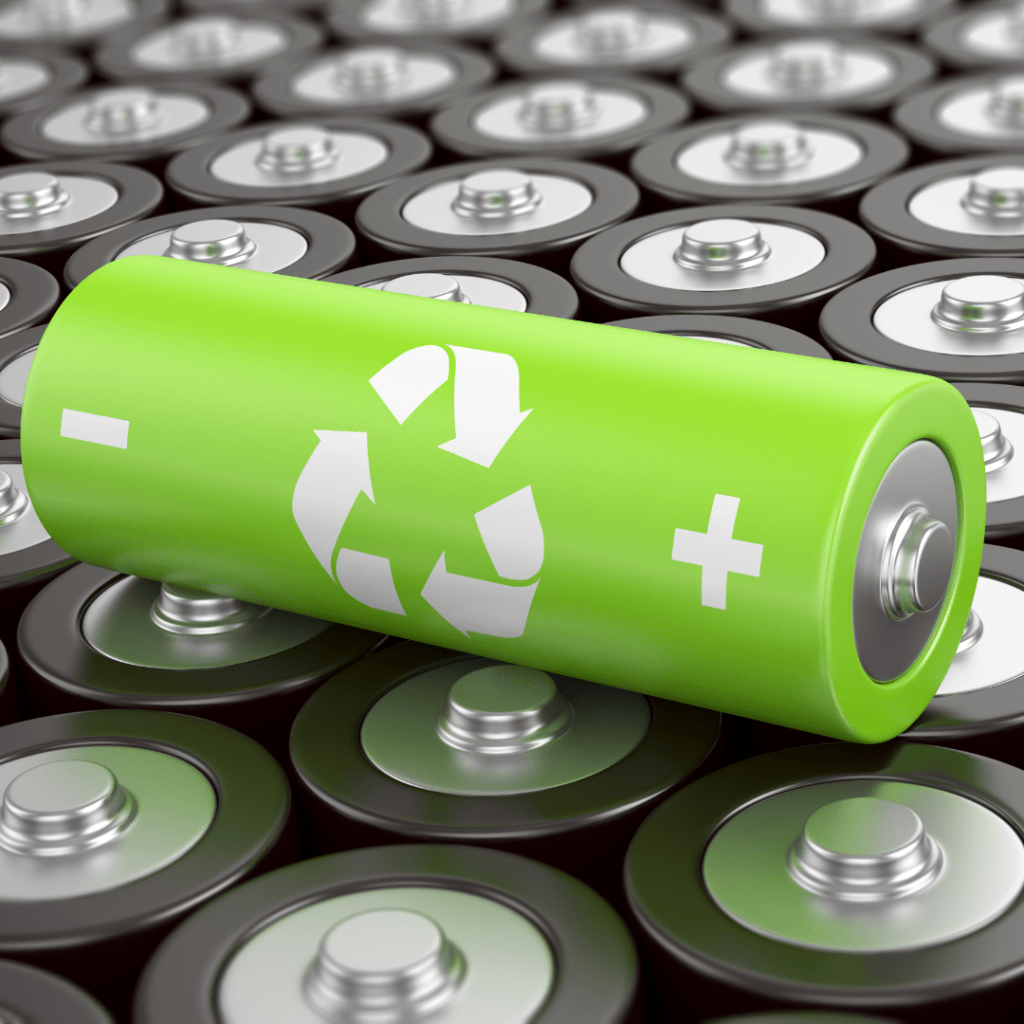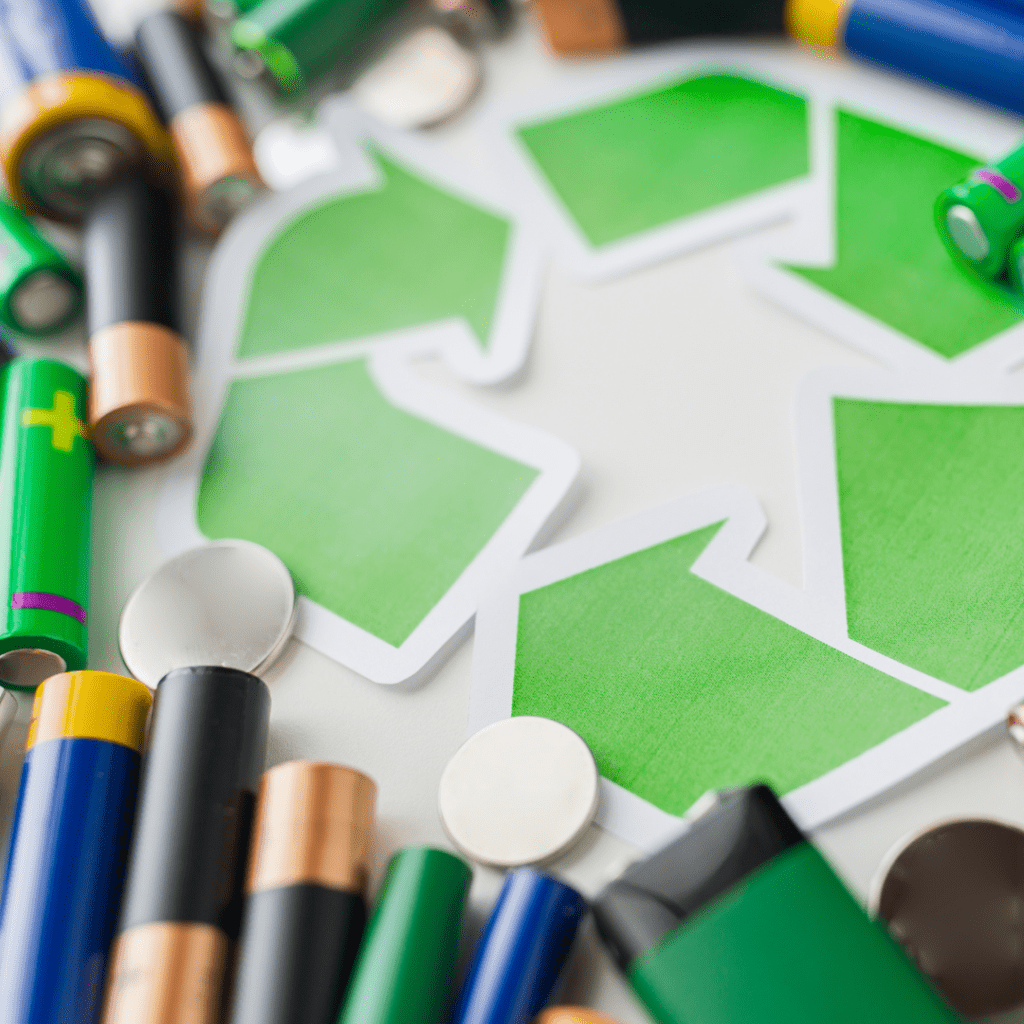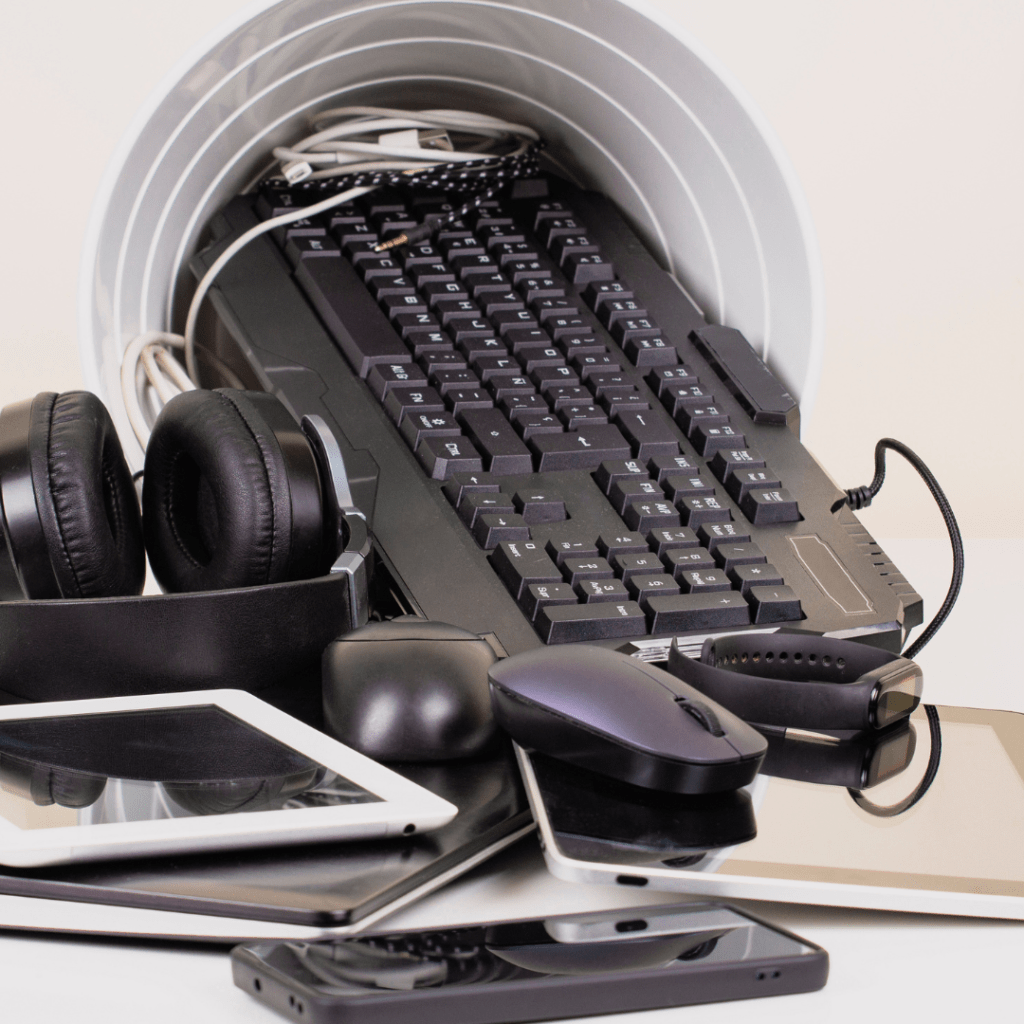Portable Battery Recycling Opportunities for Producers
In 2023, lithium-ion batteries were 80% cheaper than they were in 2013. Load shedding was also at its worst and many, many people were buying inverters, UPS systems, rechargeable lights, and battery packs. Today, load shedding has thankfully died down, but the single-use portable batteries we bought are prolific and gathering dust in a cupboard in our homes. What happens to them all when they can no longer charge? If they end up polluting the environment, will the original sellers be to blame?
EPR Regulations have been enacted in South Africa to ensure producer responsibility for spent batteries post-consumer. Various solutions exist, from take-back schemes with in-store bins to drop batteries into at major retail outlets, to collections from eWASA’s national network of recyclers.
Why We Should Be Promoting Recycling in the Battery Industry
The first and probably most obvious reason we should be recycling batteries is because of the severe negative effects they can have on the environment. Batteries are considered hazardous waste for a reason – they can contaminate the soil and water and harm living creatures. Yet this is still not the most pressing reason to recycle batteries.
Scientific forecasts suggest that the demand for lithium could exceed supply by at least 25% by 2050. Similar concerns surround cobalt and the rare earth elements used in electronics. As the world welcomes solar-powered homes and electric vehicles, the need for batteries will only increase. Recycling the batteries of today will be crucial in saving raw materials for tomorrow.
Running a Battery Recycling Programme as Part of an EPR Scheme

The portable battery industry has been identified as a source of hazardous waste by the Department of Forestry, Fisheries and the Environment. As such, it is subject to extended producer responsibility (EPR). All producers in this industry – including importers and resellers – must comply with South African EPR legislation to reduce their waste footprint.
Collecting dead batteries from the public and sending them for safe disposal is one way to meet your EPR obligations as a producer. Such “take-back” or “buy-back” schemes ensure your products don’t end up in landfills and dumps where they can cause environmental harm. They also have other benefits, like boosting your public image and helping you develop more innovative products.
The best way to set up a take-back scheme for portable batteries is to join a producer responsibility organisation (PRO). Through the PRO, you will have access to a network of recyclers and collectors who can facilitate the take-back process.
The Importance of Fairness and What’s in it For Me?
Like many of life’s noble pursuits, recycling is not something everyone wants to do. Setting up a take-back scheme is one thing, but getting people to actually participate is another. Research shows that perceived fairness is one of the most important factors people consider when accepting or rejecting an idea. If your take-back scheme sounds fair enough, it will likely see better results.
Successful take-back schemes often come with some form of reward. This satisfies the, “What’s in it for me?” side of things and helps you build stronger relationships with your customers. We outline a few ways to implement a rewards-based take-back scheme below.
- Store Vouchers
Possibly the easiest way to get people involved in recycling is to offer them vouchers or credit when they bring in their used batteries. A model like this is a win-win – the customer gets a discount and you make a sale, albeit at a discounted price. Your shoppers should already be familiar with the process thanks to tech trade-in giants Samsung and Apple. - Online Rewards
Going online could make your battery recycling campaign more unique and appealing to younger customers. This might involve sending people credits for gaming or streaming services or setting up recycling streak goals that come with airtime and data. Considering that batteries power toys and entertainment devices, this model couldn’t be more fitting. - Product Giveaways
Offering people free products instead of vouchers could work if you operate within a niche market. For example, a film shop could offer free printing when you bring in a camera battery for recycling. Hardware and grocery stores that sell batteries could make the freebie product options wider to accommodate for the different needs and tastes of their customers. - Competitions
Batteries are small and easy enough to stash away, so people tend to collect them. You can use this to your advantage by running seasonal recycling drives that come with prizes for participants. This way, you don’t have to manage a take-back scheme all year. It also allows you to offer bigger rewards that get people more interested. - Donations
Running a recycling competition with charity-adjacent prizes could help you meet your EPR and CSR obligations at the same time. For example, you might run a battery recycling drive near Christmas and use the proceeds to buy toys for underprivileged children. Alternatively, your drive could benefit your customers’ own families – recycle to win free school shoes, stationery, lunch packs, etc.
Start Recycling Portable Batteries With eWASA
According to the law, if you sell batteries, you should be recycling them. Let eWASA help you with your EPR obligations by joining our PRO today. We can connect you with battery recyclers nationwide to make setting up a take-back scheme easier for your business. For more information about battery recycling or EPR, feel free to get in touch.
Sources:


